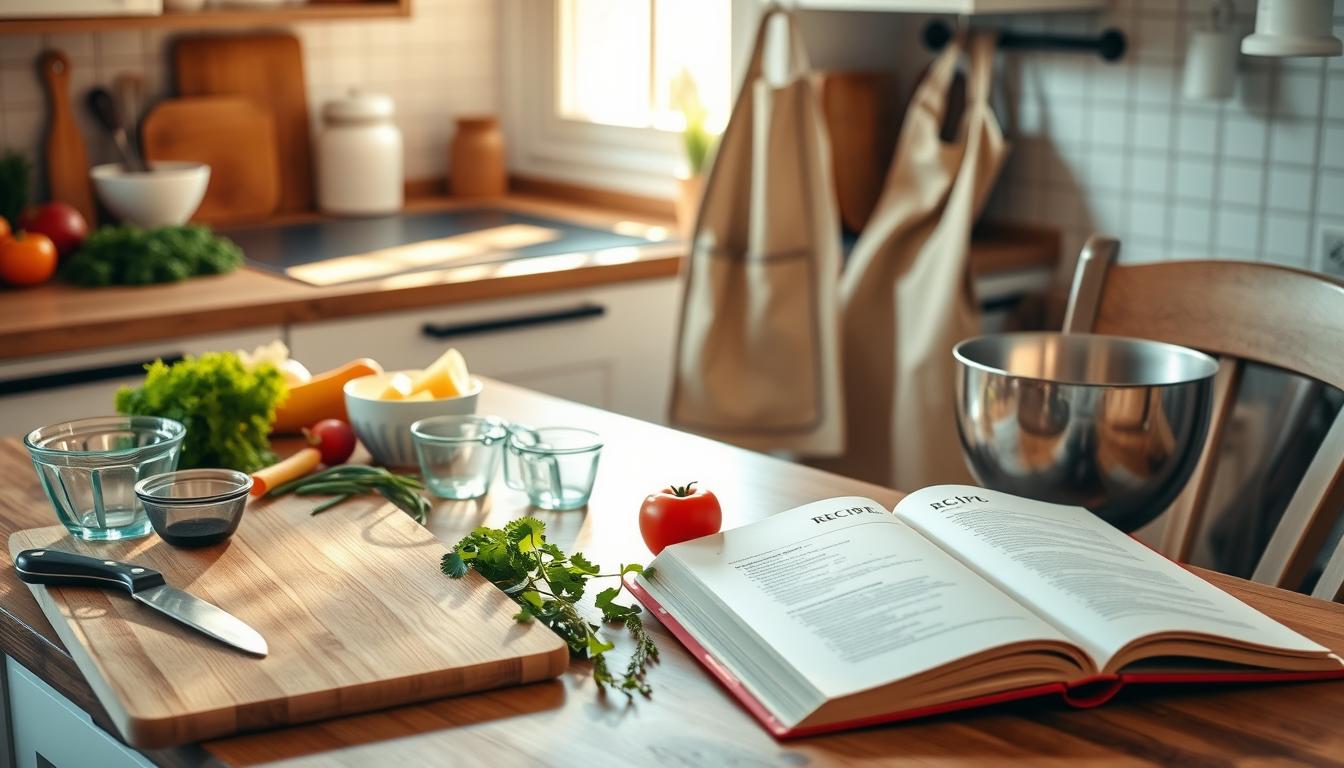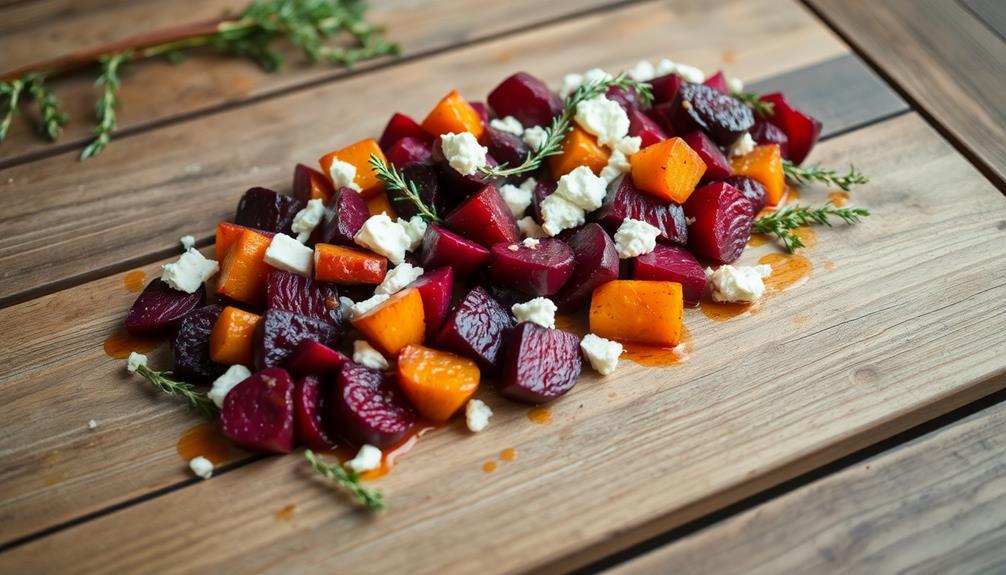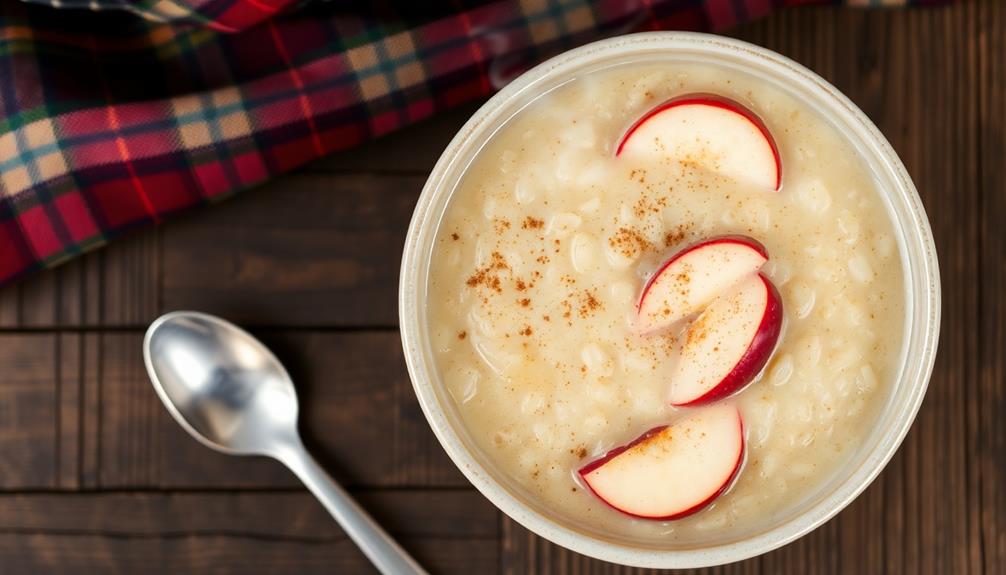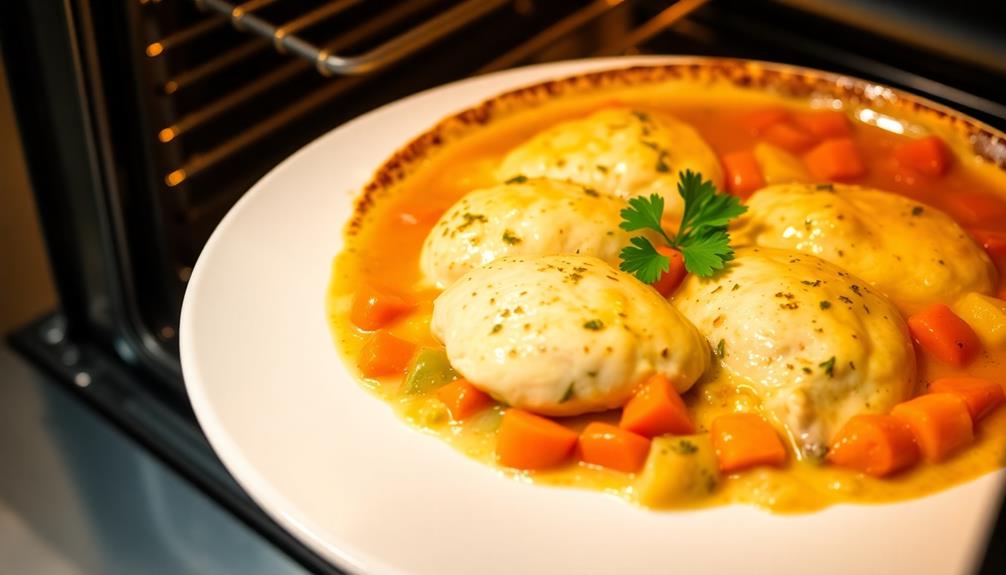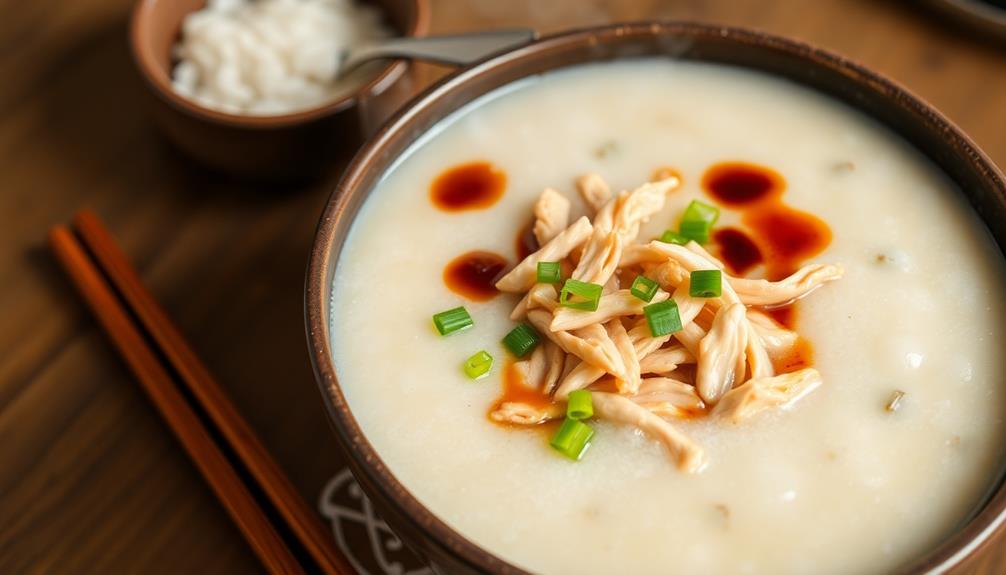Stepping into the kitchen for the first time can be an overwhelming experience. You might find yourself surrounded by strange gadgets, unfamiliar ingredients, and countless recipes. Yet, it doesn’t need to be this intimidating. Cooking is more than just a skill; it is the heart of home. For many younger Americans, the rhythm of life has often meant convenience foods and takeout overshadows the joy of home-cooked meals. Perhaps you recall a time when preparing a meal felt out of reach, when takeout seemed easier than trying to follow a recipe. With over a decade of cooking behind me, I still consider myself a basic cook, as I continue to learn and explore. Just remember, creating something delicious takes time, effort, and a willingness to learn from your mistakes. It’s okay if a dish takes longer than expected; it could take even up to 90 minutes to prepare and clean up after cooking a meal that is not just scrambled eggs. Don’t shy away from the slow process; it’s where knowledge grows.
With guidance from publications like The New York Times, Bon Appetit, and Serious Eats, you’ll uncover helpful tips and comforting recipes. Each step towards mastering your kitchen opens doors to delightful possibilities and nourishes your connection to cooking. It’s also worth noting that as restaurants pivot to serve as markets and farms offer CSA boxes, supporting local food systems enhances your culinary journey. This article provides a trove of beginner-friendly cooking tips to help you build confidence in the kitchen and embrace the rewarding experience of making meals from scratch.
Key Takeaways
- Cooking can be an overwhelming yet rewarding experience for beginners.
- Convenience foods often overshadow home-cooked meals for many younger Americans.
- It may take significant time to prepare and clean up after cooking.
- Reliable cookbooks and recipes from well-established publications are essential for success.
- Creating a supportive cooking environment helps build confidence and skills.
Get Started with Your Kitchen Essentials
Every new cook needs to feel confident in their kitchen. An essential step toward achieving this is gathering your beginner kitchen essentials. Equipped with the right tools, you will find that cooking becomes less intimidating and more enjoyable.
The following list provides a solid foundation of must-have cooking tools that will aid you in your culinary journey:
- 1 handheld mixer (or consider a stand mixer for an investment)
- 2 sheet pans and a cake pan
- A trusty spatula
- A set of measuring cups, spoons, glassware, and mixing bowls
- 1 Dutch oven (or a more affordable alternative)
- A wooden spoon
- A set of saucepans and pots, with at least 1 large and 1 small of each
- 1 wooden cutting board and 1 plastic cutting board
- A high-quality chef’s knife, bread knife, and paring knife (or a more affordable knife set)
- A grater or microplane
In addition to these tools, don’t underestimate the importance of pantry items. Diced tomatoes, for instance, are versatile and can enhance various recipes. Investing in quality essentials will lead to greater efficiency and safety while cooking.
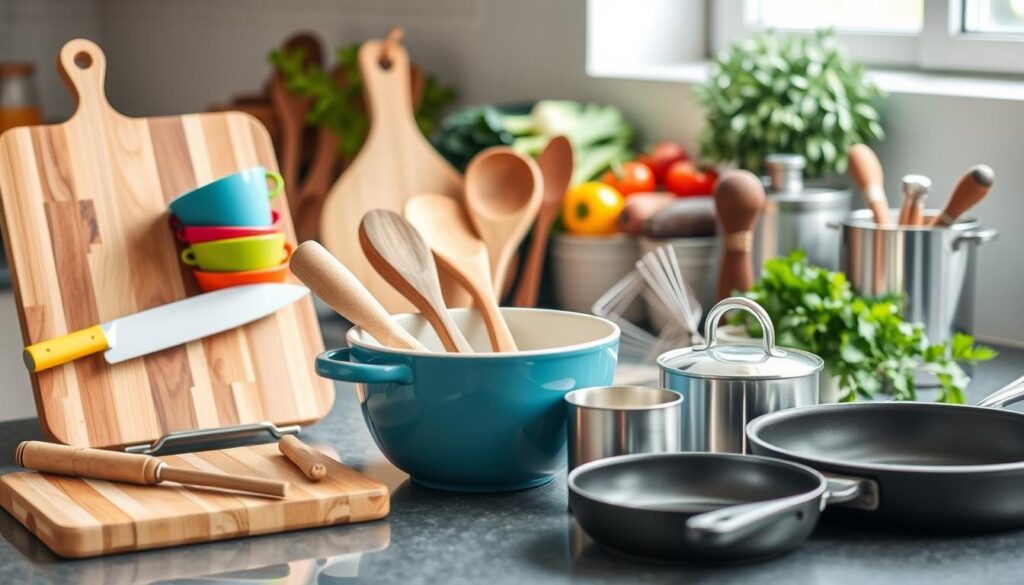
By starting with these beginner kitchen essentials, you’ll feel prepared to tackle a wide range of recipes. Each tool serves a unique purpose, ensuring you can perform various cooking techniques from baking to boiling and everything in between.
| Essential Item | Purpose |
|---|---|
| Handheld mixer | For mixing, whisking, and blending |
| Sheet pans | Perfect for roasting and baking |
| Spatula | For flipping and scraping food |
| Measuring cups and spoons | Essential for accurate ingredient quantities |
| Dutch oven | Ideal for slow cooking and stews |
| Wooden spoon | Great for mixing and stirring |
| Chef’s knife | For chopping and prepping ingredients |
| Grater | Useful for cheese, zesting, and more |
Your kitchen will transform into a place of creativity and culinary exploration with these beginner kitchen essentials. With the right must-have cooking tools at your disposal, every meal preparation experience can be rewarding.
Beginner-Friendly Cooking Tips: Organizing Your Space
For new cooks, organizing your kitchen space is essential for a smooth cooking experience. Implementing some effective kitchen organization tips can help streamline your processes and reduce stress. Start by dividing your kitchen into five work-friendly zones: cooking, baking, drink station, lunch prep, and cleaning. Such a layout ensures that everything you need is within reach, making the cooking process enjoyable.
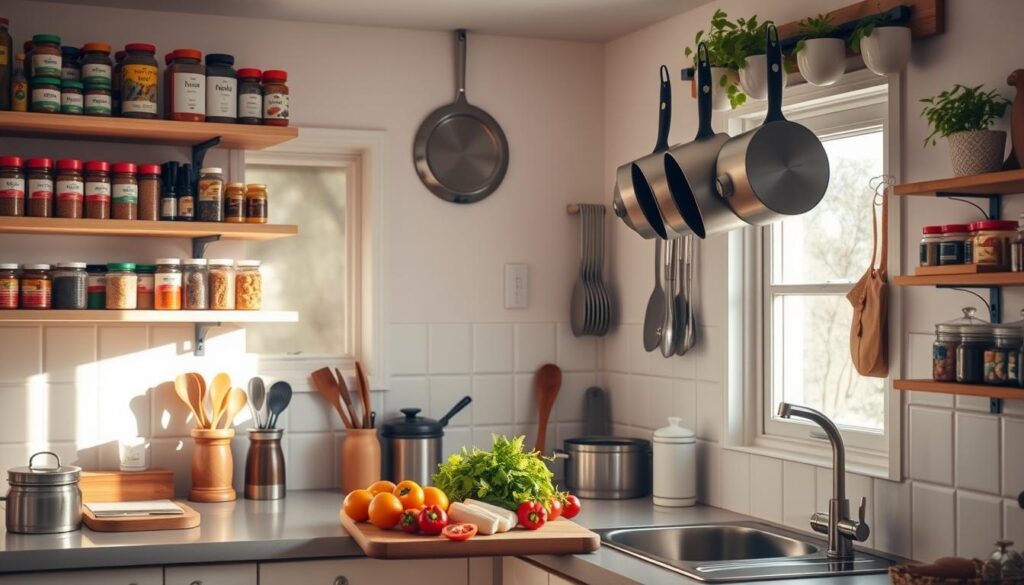
Using clear containers not only makes locating items simple but also encourages a tidy appearance. Label jars for quick identification, especially for spices. Glass jars stand out as a preferred option for storing spices, allowing you to easily see when supplies are running low. Keep your everyday dishes organized by stacking them according to their categories, such as dinner plates, salad plates, and bowls. This practice enhances accessibility along with efficient storage.
Consider utilizing thrift stores for budget-friendly kitchen organization solutions. Purchasing cabinets from Habitat Restore for $20 is a great option to increase storage without breaking the bank. Ikea spice racks can provide additional storage, while consolidating small appliances into one cabinet helps identify overlaps and unnecessary duplicates. Experts such as Jamie Hord recommend sorting kitchen items into categories like “Keep,” “Recycle,” and “Donate,” promoting a clutter-free environment.
Strategically place utensils and tools in designated zones. For example, store knives in a drawer near the dishwasher and oven to facilitate easy meal prep. An organized drink zone positioned between your refrigerator and coffee bar streamlines access to beverages. Implementing these organization principles will not only optimize your cooking space but also make you feel more comfortable and in control as you embark on your culinary journey.
Understanding Basic Cooking Techniques
Embarking on your culinary journey starts with mastering some essential basic cooking techniques for starters. These foundational cooking skills serve as the bedrock that supports more complex recipes and diverse flavors. By familiarizing yourself with techniques like boiling, sautéing, and baking, you position yourself for success in the kitchen.

Boiling offers three distinct methods — rolling, slow, and simmer. Each has its specific use and knowing when to apply them enhances your overall cooking experience. For instance, boiling pasta requires a rolling boil, while simmering is ideal for soups and sauces. Proper knife skills are equally essential; they ensure uniform cooking and enhance the presentation of your dishes. Slicing ingredients like onions correctly can drastically impact your dish’s outcome.
Proper seasoning is a game-changer. Salt should be used strategically throughout the cooking process, allowing flavors to develop. When making vinaigrettes, adhere to the classic 3:1 ratio of oil to vinegar to create the perfect dressing. Roasting meats and vegetables at temperatures between 375 and 425 F yields optimal flavor and texture. Searing meat in a hot pan with minimal oil creates a delightful caramelized crust, sealing in juices and enhancing taste.
Another technique, deglazing, can elevate your sauces. After searing meat, use a splash of wine or broth to lift the flavorful browned bits stuck to the pan, creating a rich and savory base for your sauce. Eggs deserve special mention, too; they are incredibly versatile. Learning how to crack and cook eggs properly opens up many doors for breakfast and baking alike.
As you progress, remember that practice paves the way for improvement. According to recent statistics, 88% of beginners are keen to grasp foundational cooking skills, focusing heavily on proper knife usage, sautéing, stir-frying, and precision in baking. Each technique you master allows you to explore more complex dishes and flavors, ultimately creating a rewarding cooking experience. Moreover, as you continue to hone your foundational cooking skills, you will also have the opportunity to elevate your grill cooking skills. Learning how to properly grill meats, vegetables, and even fruits can add another dimension to your culinary repertoire. By mastering the art of grilling, you will be able to create delicious and impressive dishes that will leave a lasting impression on your guests.
Importance of Reading Recipes Thoroughly
Reading recipes effectively stands as a vital part of the cooking process. Engaging with a recipe from start to finish not only enhances your confidence but also sets the stage for baking success. By familiarizing yourself with the ingredient list order, you can anticipate how different elements will come together, paving the way for smoother culinary adventures.
Pay attention to any instructions that follow a comma in the ingredient list. These often denote an ingredient’s required temperature or specific preparation actions. For instance, packing brown sugar or softening butter can make a significant difference in your final dish. Make preheating the oven a priority, as it ensures that your recipe starts on the right foot.
Awareness of the concept of doneness, which includes understanding time ranges and visual indicators, plays a critical role in achieving optimal baking results. Frequently, the ten most common recipe mistakes stem from a lack of proper reading and comprehension. Ensuring that you have all necessary ingredients and tools on hand before starting not only saves time but also mitigates stress.
Ingredients are typically listed in the order they will be utilized, enhancing the efficiency of your cooking process. Be mindful of labels such as “divided,” which indicate that an ingredient will be used multiple times. Precision in measurement is another aspect of recipe comprehension tips that cannot be overlooked, as it greatly impacts the success of your dish.
| Common Recipe Mistakes | Importance of Proper Reading |
|---|---|
| Not preheating the oven | Impacts cooking process efficiency |
| Misunderstanding ingredient measurements | Accuracy is crucial for successful outcomes |
| Ignoring cooking terms | Essential for correct recipe execution |
| Neglecting to prepare ingredients correctly | Affects overall dish quality |
| Skipping steps | May lead to poor results |
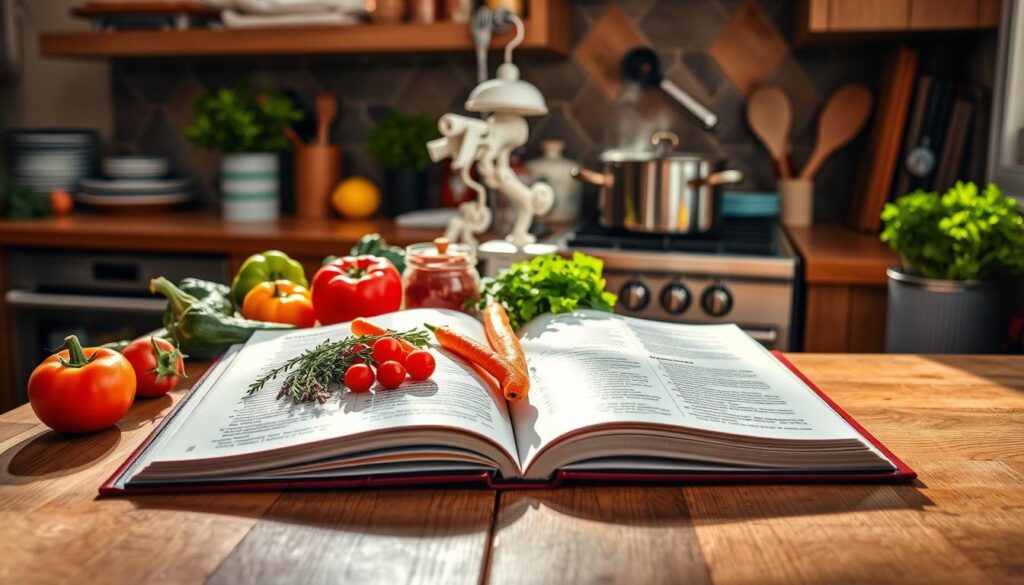
Gathering Ingredients and Tools Before You Start
Before starting your cooking journey, gathering everything you need is essential for a smooth workflow. This process, known as mise-en-place preparation, involves having all ingredients and tools organized at hand, which can significantly enhance your cooking experience. Let’s delve into some handy ingredient gathering tips and essential tools to assist you in your kitchen adventures.
Preparing Your Mise-en-Place
Mise-en-place preparation is a fundamental practice for any cook. It involves setting up your ingredients in an orderly manner, ensuring that you have everything ready before you start cooking. This includes measuring, chopping, and organizing your ingredients in separate bowls. By doing so, you can minimize stress and distractions while cooking. Here are some tips for effective mise-en-place:
- Start by reading through your recipe to know what ingredients you will need.
- Gather all your ingredients and tools before turning on the stove.
- Measure out ingredients using transparent measuring cups for accuracy.
- Set aside any utensil and appliance that you will need during cooking.
- Use a timer to keep track of cooking times to avoid overcooking.
Essential Cooking Tools for Beginners
Having the right tools in your kitchen can boost your confidence and efficiency. Here’s a list of essential cooking tools that every beginner should consider:
| Tool | Purpose |
|---|---|
| Chef’s Knife | For chopping and slicing; must be sharpened every 1-2 months. |
| Cutting Board | Provides a safe and stable surface for cutting. |
| Measuring Cups | For accurate measuring of dry and liquid ingredients. |
| Mixing Bowls | Essential for preparing and mixing ingredients. |
| Timer | Helps to manage cooking times, avoiding under or overcooking. |
| Meat Thermometer | Ensures meat reaches safe internal temperatures. |

Equipped with these tools and following ingredient gathering tips will undoubtedly make your cooking sessions more enjoyable and productive. You’ll find that with a clear and organized setup, cooking can become less intimidating and much more rewarding.
Simple Beginner Recipes to Try
Embarking on your cooking journey can be both exciting and a bit daunting. Fortunately, a plethora of simple beginner recipes await your culinary exploration. These dishes require minimal ingredients and offer varied cooking techniques to help you develop your skills and confidence in the kitchen.
Easy Recipes for First-Time Cooks
For first-time cooks, starting with easy recipes lays the foundation for building skills. Here are some dishes to consider:
- Stir-Fried Chicken with Veggies: A quick 15-minute dish that combines chicken and seasonal vegetables.
- Baked Omelet: A versatile option for breakfast or brunch, take about 30 minutes to prepare.
- Vegetable Curry: This meal is both comforting and simple, with vibrant ingredients that create rich flavors.
- Pasta Carbonara: A staple that challenges your culinary abilities with basic techniques like boiling and mixing.
- Grilled Cheese Sandwich: Basic yet essential, focusing on temperature control and butter management.
Quick Meals for Busy Days
On those hectic days, quick cooking ideas become invaluable. These recipes can be ready in as little as 10 minutes:
- Shrimp Stir-Fry: Quick-cooking shrimp in a hot skillet with vegetables can work wonders for your schedule.
- Ramen Noodle Bowl: An easy and satisfying meal that can be enhanced with leftover veggies or proteins.
- Cheesy Broccoli and Rice: A comforting dish, combining pantry staples for rapid preparation.
- Vegetable Burgers: Using store-bought patties, you can whip up a meal in no time.
- Chickpea Salad: A refreshing option that utilizes canned ingredients for a speedy meal.
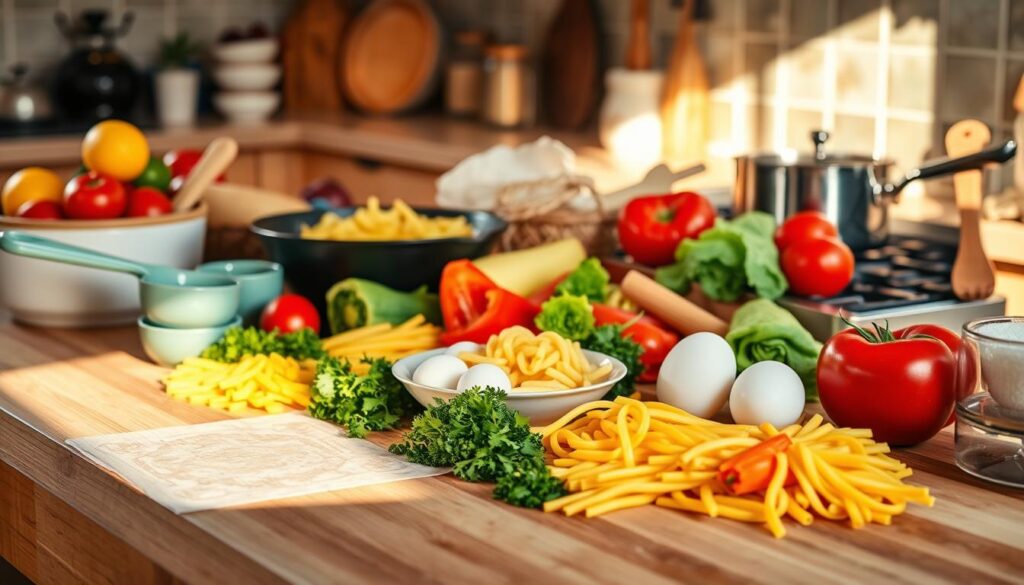
| Recipe | Main Ingredients | Cooking Time | Vegetarian Option |
|---|---|---|---|
| Stir-Fried Chicken with Veggies | Chicken, bell peppers, garlic | 15 minutes | No |
| Baked Omelet | Eggs, cheese, veggies | 30 minutes | Yes |
| Pasta Carbonara | Pasta, bacon, eggs | 20 minutes | No |
| Grilled Cheese Sandwich | Bread, cheese, butter | 10 minutes | Yes |
| Vegetable Curry | Potatoes, peas, curry paste | 30 minutes | Yes |
Each recipe not only introduces different ingredients but also cooking techniques such as roasting, broiling, or marinating. Personalize these dishes to suit your taste by swapping out ingredients. This flexibility allows you to utilize leftovers creatively, paving the way for more adventurous cooking in the future.
Quick Cooking Tips for Novices
As you embark on your culinary journey, implementing quick cooking tips for novices can significantly enhance your kitchen experience. These tips not only simplify the cooking process but also focus on essential flavor enhancement techniques to elevate your dishes. The key lies in mastering the basics while being mindful of simple yet effective strategies.
Mastering Flavor Through Tasting
Regularly tasting your food while it cooks is crucial for perfecting flavors. This practice enables you to adjust seasonings and ingredients as needed, ensuring a well-balanced dish. Remember, your palate can guide you—if something tastes off, don’t hesitate to make adjustments.
Using Room Temperature Ingredients
For optimal baking and cooking results, using room temperature ingredients can make a significant difference. Allowing eggs, butter, and meats to sit at room temperature promotes even cooking and blending. This approach not only improves texture but also enhances overall flavor, creating a harmonious dish. Incorporating these quick cooking tips for novices into your routine will lead to delightful meals that impress your taste buds.

| Quick Cooking Tips | Description |
|---|---|
| Taste as You Go | Regularly taste your food to adjust seasonings. |
| Room Temperature Ingredients | Use room temperature ingredients for consistent cooking. |
| Chop Ahead | Prepare and chop ingredients in advance for stress-free cooking. |
| Invest in Quality Tools | A sharp chef’s knife enhances efficiency and safety in the kitchen. |
| Organize Your Space | Keep your workspace tidy and well-prepped for successful meal prep. |
Budget-Friendly Cooking Tips for Beginners
Cooking on a budget doesn’t mean sacrificing quality or flavor. With some careful planning, you can create delicious meals without breaking the bank. Here are some budget cooking tips for beginners that focus on meal preparation and sensible shopping strategies to stretch your resources further.
Meal Prep Ideas to Save Time and Money
One of the best affordable meal prep ideas involves planning your meals around simple, economical recipes. Emphasize using basic ingredients such as canned salmon, ramen noodles, beans, pasta, and canned tuna. These staples are not only budget-friendly but also versatile. For example, you can include:
- Sheet Pan Kielbasa Potatoes and Green Beans – Popular for its simplicity and great reviews.
- Easy French Bread Pizza – A quick meal allowing for easy substitutions.
- Garlic Noodles with Beef and Broccoli – Satisfying and quick, perfect for busy days.
Preparation does not have to be time-consuming, with most meals taking 30 to 40 minutes. Involving family members in menu planning can help identify favorite meals, making it easier to create a balanced diet that includes vegetables, fruits, whole grains, and protein.
Shopping Smart: Utilizing Weekly Specials
When it comes to shopping, take advantage of weekly specials to maximize savings. Meal planning based on what’s on sale ensures that you get the best deals while minimizing waste. For instance, seasonal recipes can lead to lower costs as fresh produce is often discounted. Consider using plant-based protein sources, such as legumes and tofu, which are both nutritious and affordable.
Maximize your budget through smart purchasing—opt for bulk buying when it makes sense, especially for items that are easy to store like rice, pasta, barley, and couscous. You can also stretch leftover meats, such as ham or chicken, into new dishes, reducing both food waste and costs.
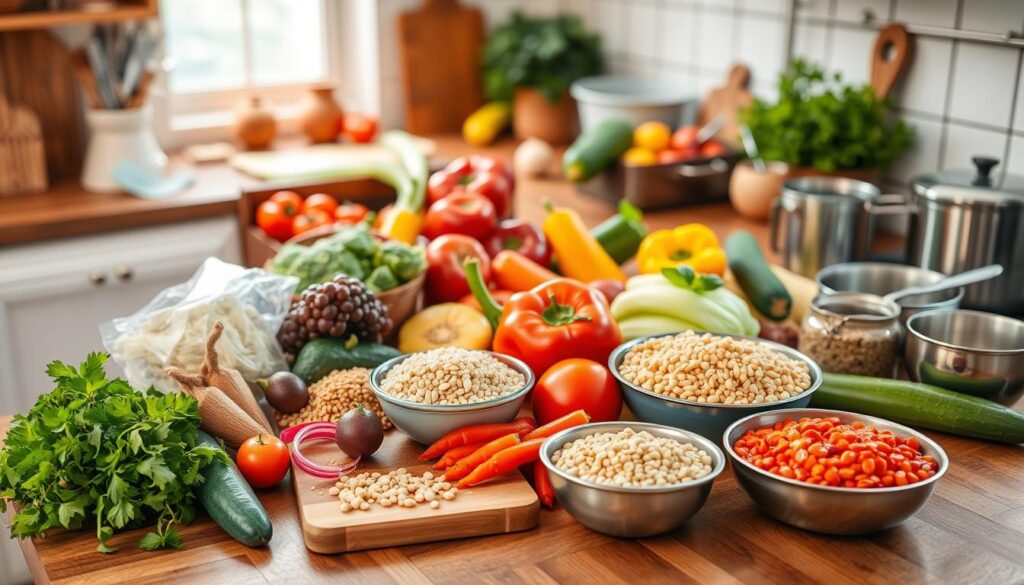
Embracing these budget cooking tips for beginners will help you enjoy delicious meals without the financial strain. Remember, cooking can be both affordable and satisfying with a bit of planning and creativity.
Beginner Kitchen Hacks for Success
Getting comfortable in the kitchen involves mastering various skills through smart strategies. Applying beginner kitchen hacks can significantly simplify your cooking journey. You can save time, enhance your creativity, and reduce stress by organizing your tools and experimenting with different ingredients.
Keeping Your Tools Organized
Organization plays a crucial role in your culinary success. By setting up your kitchen thoughtfully, you will streamline your cooking process. Here are some effective beginner kitchen hacks to help you stay organized:
- Use clear containers for storing spices. This helps you see what you have at a glance.
- Label your tools and utensils, making it easy to find what you need.
- Incorporate a pegboard to hang utensils. This keeps them in reach and frees up counter space.
- Designate specific drawers or areas for similar tools, ensuring that everything has its place.
Experimenting with Ingredients
Cooking experimentation tips can enhance your culinary skills and increase your enjoyment in the kitchen. Start small and mix flavors to discover what you like. Here are some suggestions to encourage your cooking creativity:
- Try one-pot or sheet-pan recipes. These methods require minimal ingredients and limit cleanup.
- Experiment with fresh herbs and spices to learn which combinations excite your palate.
- Start by incorporating one or two new ingredients into your meals each week to develop your confidence.
- Utilize leftovers creatively; wilt remaining salad greens with olive oil, garlic, and spices to prevent waste.
- Enhance store-bought products, like hummus, with herbs and spices for extra flavor without much effort.
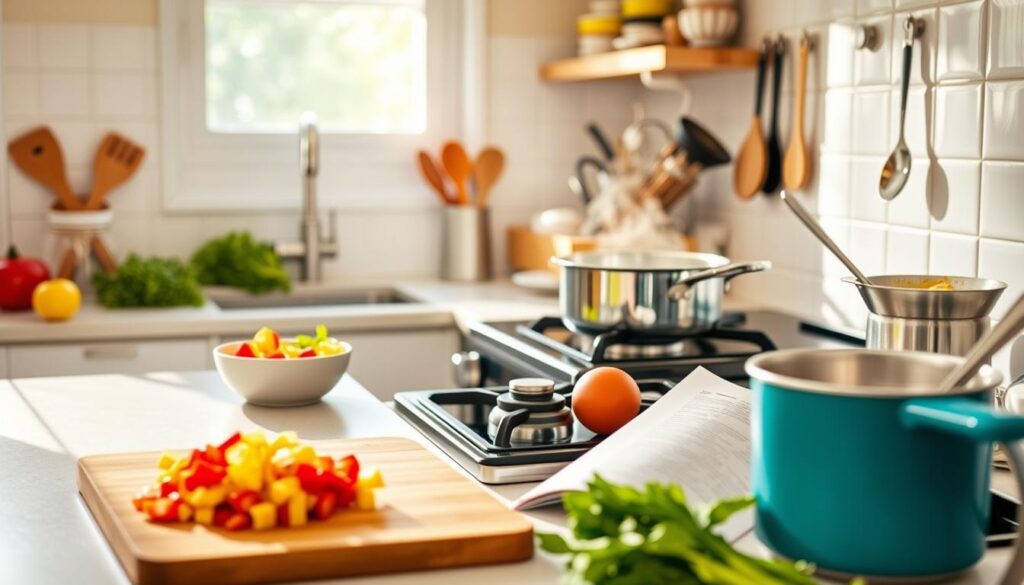
Engaging with Cooking Communities for Support
Connecting with cooking communities can significantly enhance your culinary journey. Both online and offline platforms offer a welcoming space for beginner cooks to learn, share experiences, and find encouragement. You can engage with fellow cooking enthusiasts who understand the challenges and triumphs of mastering new recipes.
One of the most active cooking communities is r/Baking, which has over 100,000 users sharing their baking adventures, tips, and recipes. This vibrant group fosters a sense of belonging and motivation. On the other hand, r/slowcooking caters to both seasoned chefs and newcomers, providing a multitude of slow cooker recipes that are easy to follow.
While some channels like r/recipes currently show limited activity, others like Food52 actively encourage participation through user comments and recipe contests. These interactions help build a strong support network among novice cooks. Additionally, platforms like Yummly personalize recipe suggestions based on your dietary needs and preferences, making meal planning more accessible.

Participating in culinary support networks exposes you to a wealth of knowledge. You can discover tools and techniques through various resources such as Foodgawker and Punchfork, which showcase high-quality recipes and engage users by ranking dishes based on popularity. Recipe sharing sites can also introduce you to an instant audience, providing feedback and encouragement.
Embracing the connections formed through these cooking communities not only helps you gain confidence in the kitchen but also fosters a shared passion for culinary creativity.
Conclusion
As you reflect on your journey through these beginner cooking tips, it’s clear that cooking for beginners is an enriching experience. Embracing essential skills such as knife handling, heat control, and understanding flavor profiles can transform your culinary endeavors. The beginner cooking tips summary within this article emphasizes that the path to becoming a confident cook is filled with learning, experimentation, and above all, joy. Remember, it’s a journey, not a race.
When you start cooking at home, you’re not only gaining valuable skills but also reaping numerous benefits. Studies show that those who cook regularly tend to consume fewer calories and save significantly on meal expenses. Mastering techniques like sautéing, roasting, and boiling creates a foundation for your cooking repertoire, allowing you to explore a variety of dishes. The crucial takeaway is that with patience and practice, anyone can achieve success in the kitchen.
Your excitement for cooking should be fueled by the experimentation and freedom it provides. Each meal is an opportunity to master new techniques and flavors, all while having fun. So don’t shy away from mixing ingredients or trying new cooking methods; after all, 85% of culinary enthusiasts find that exploration is key to enhancing their skills. Now, as you step into your kitchen, remember to embrace the process, and you will undoubtedly discover the joy of home cooking!
